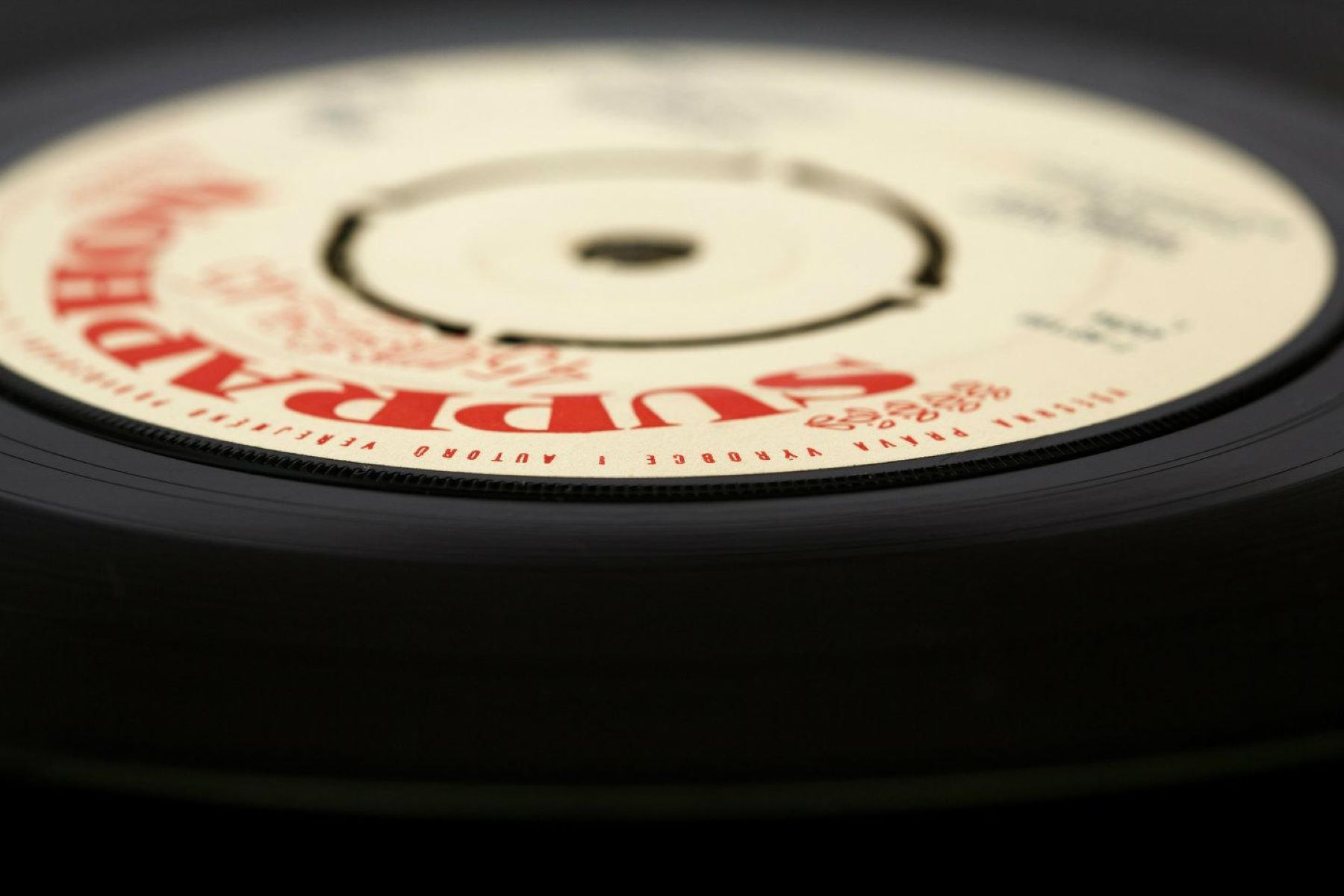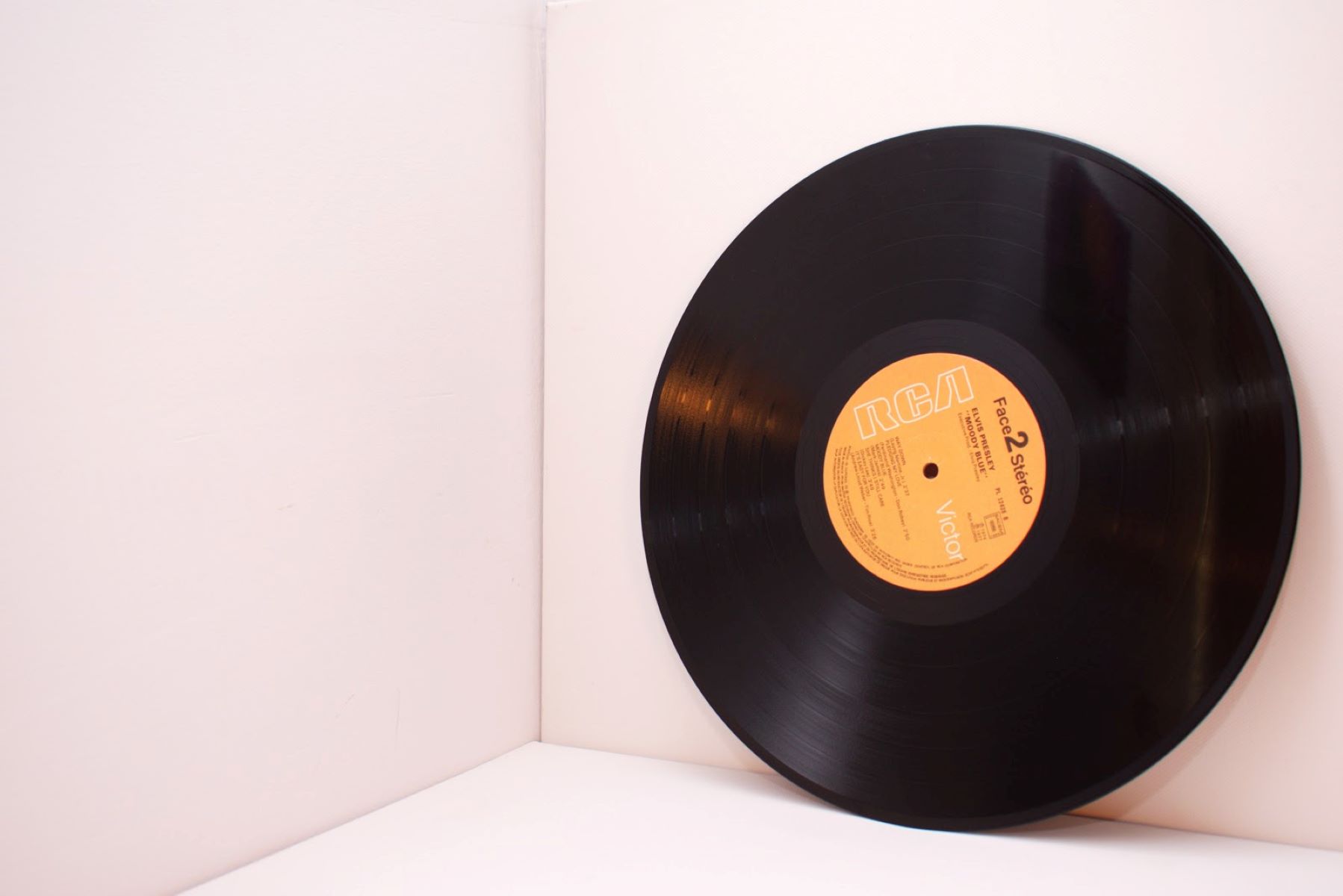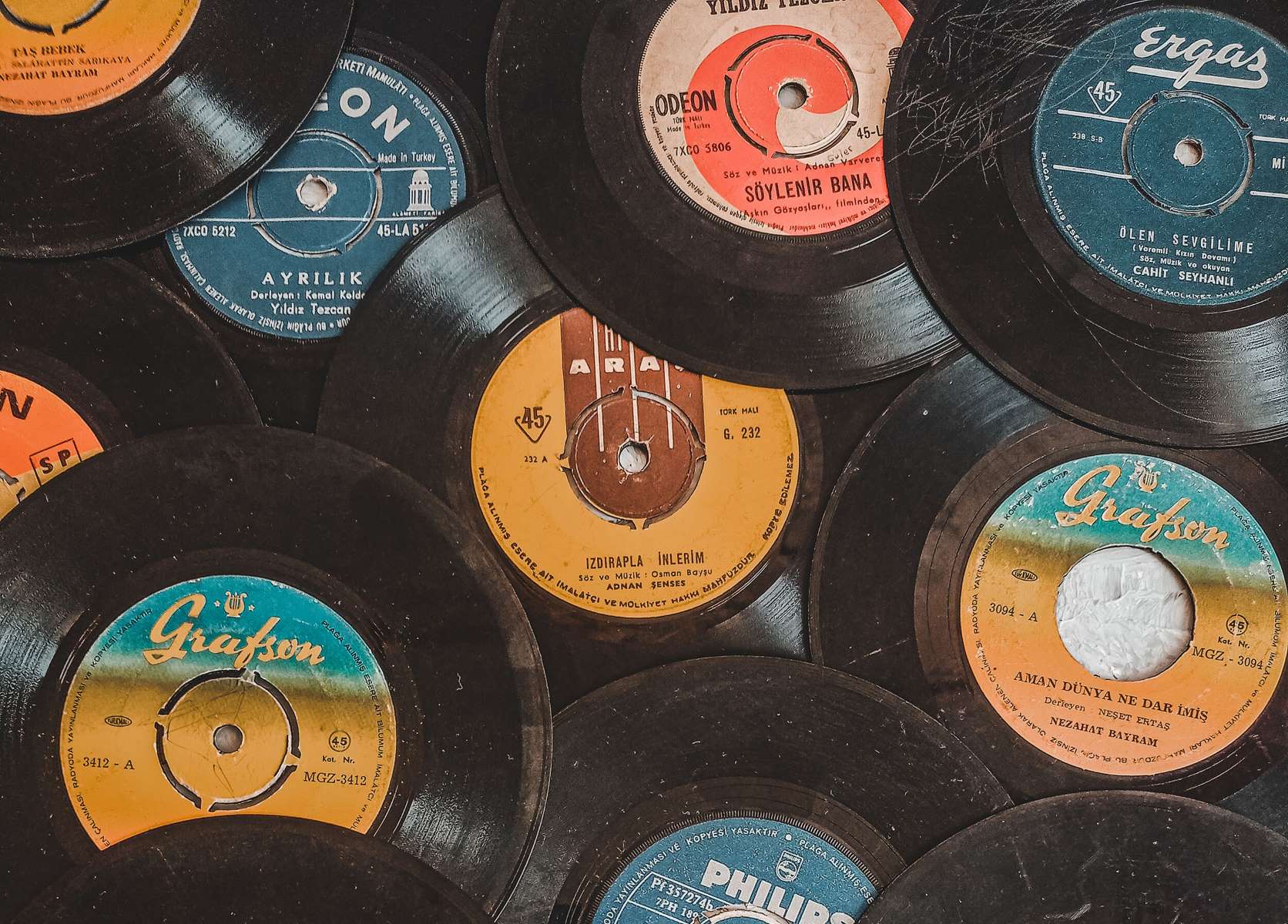Home>Production & Technology>Songwriter>How To Become A Songwriter For A Record Label


Songwriter
How To Become A Songwriter For A Record Label
Published: February 26, 2024
Learn how to become a successful songwriter for a record label with expert tips and strategies. Unlock your potential and achieve your dream career in the music industry.
(Many of the links in this article redirect to a specific reviewed product. Your purchase of these products through affiliate links helps to generate commission for AudioLover.com, at no extra cost. Learn more)
Table of Contents
Introduction
Becoming a songwriter for a record label is a dream shared by many music enthusiasts. The allure of crafting lyrics and melodies that resonate with audiences, coupled with the potential for widespread recognition and financial success, makes the prospect of entering the music industry as a songwriter an enticing one. However, the path to achieving this goal requires dedication, skill, and a deep understanding of the music business.
In this comprehensive guide, we will delve into the essential steps and strategies for aspiring songwriters to realize their ambitions within the realm of record labels. From honing your songwriting abilities to navigating the intricate landscape of music industry relationships, this article will equip you with the knowledge and insights necessary to embark on this exciting journey.
Whether you're a budding lyricist with a passion for storytelling or a melody maestro with an ear for captivating hooks, the world of songwriting offers a boundless canvas for artistic expression. By immersing yourself in the guidance provided here, you'll gain a clearer understanding of the multifaceted role of a songwriter and the pivotal steps required to thrive within the competitive domain of record labels.
So, fasten your seatbelt, tune your guitar, and let's embark on an enlightening exploration of how to ascend the ranks and become a sought-after songwriter for a record label. The road ahead may be filled with challenges, but with the right knowledge and perseverance, you can transform your musical aspirations into a reality that resonates with audiences around the world.
Understanding the Role of a Songwriter
At the heart of every captivating melody and compelling lyric lies the craftsmanship of a songwriter. The role of a songwriter extends far beyond simply penning words or composing musical notes; it encapsulates the art of storytelling, emotional expression, and the ability to encapsulate the human experience within a few minutes of musical magic.
A songwriter serves as a conduit for translating raw emotions, personal narratives, and universal themes into songs that resonate with audiences on a profound level. Whether it's capturing the euphoria of love, the anguish of heartbreak, or the resilience of the human spirit, songwriters possess the remarkable ability to distill complex emotions and experiences into melodies and lyrics that transcend barriers of language and culture.
In addition to serving as storytellers, songwriters often collaborate with artists, producers, and fellow musicians to bring their compositions to life. This collaborative aspect of songwriting involves not only the skillful arrangement of musical elements but also the art of tailoring songs to suit the unique vocal and stylistic nuances of the performers who will bring them to the public's attention.
Moreover, songwriters play a pivotal role in shaping the sonic identity and thematic direction of an artist or a band. Their ability to craft cohesive bodies of work, whether in the form of individual songs or entire albums, contributes to the overall artistic vision of the performers they collaborate with.
Furthermore, in the context of record labels, songwriters often find themselves at the intersection of creativity and commerce. They must balance their artistic integrity with the commercial viability of their compositions, considering factors such as market trends, audience preferences, and the branding strategies of the artists and labels they work with.
Ultimately, the role of a songwriter is a multifaceted one, requiring a blend of creativity, emotional intelligence, and business acumen. By understanding the depth and complexity of this role, aspiring songwriters can better prepare themselves to navigate the intricacies of the music industry and position themselves for success within the realm of record labels.
Developing Your Songwriting Skills
Embarking on the journey to become a sought-after songwriter for a record label necessitates the continuous honing of songwriting skills. While innate talent certainly plays a role in the art of songcraft, the development of these skills is an ongoing process that requires dedication, practice, and a willingness to embrace creative growth.
Embrace Versatility
Songwriters often find themselves traversing a diverse array of musical genres and lyrical themes. As such, cultivating versatility is essential. Experiment with different musical styles, from pop and rock to R&B and folk, allowing yourself to explore the nuances of each genre and adapt your songwriting approach accordingly. Similarly, delving into a spectrum of lyrical themes, such as love, resilience, societal issues, and personal reflections, can enrich your repertoire and expand your creative horizons.
Study the Masters
Learning from the songwriting prowess of established artists can offer invaluable insights. Analyze the works of legendary songwriters across various eras, dissecting their song structures, chord progressions, and lyrical techniques. By deconstructing the compositions of icons such as Bob Dylan, Carole King, or Stevie Wonder, you can glean inspiration and refine your own songwriting craftsmanship.
Cultivate Collaborations
Collaborating with fellow musicians, lyricists, and producers can foster a dynamic exchange of ideas and perspectives. Engaging in co-writing sessions not only cultivates a sense of camaraderie within the music community but also exposes you to different approaches to songwriting. Embracing collaborative endeavors can spark creativity, leading to the development of songs that resonate with a broader audience.
Harness Technology
In the digital age, leveraging technology can significantly enhance the songwriting process. Explore digital audio workstations (DAWs), virtual instruments, and music production software to experiment with melodies, arrangements, and sonic textures. Additionally, familiarize yourself with lyric-writing tools and apps that facilitate the organization and refinement of your lyrical content.
Practice, Practice, Practice
Like any craft, songwriting thrives on consistent practice. Dedicate time to daily or weekly songwriting sessions, allowing yourself the freedom to explore ideas without self-imposed limitations. Whether it's penning lyrics, composing melodies, or refining chord progressions, regular practice cultivates fluency in the language of music and nurtures your creative instincts.
By embracing versatility, drawing inspiration from songwriting luminaries, fostering collaborations, harnessing technology, and committing to regular practice, you can fortify your songwriting skills and position yourself for success within the competitive landscape of record labels. The cultivation of these skills serves as a testament to your dedication to the art of songcraft and propels you closer to realizing your aspirations as a revered songwriter in the music industry.
Building a Portfolio of Songs
Crafting a robust portfolio of songs is a pivotal step for aspiring songwriters seeking to establish their presence within the music industry. A well-curated portfolio not only showcases the depth and diversity of a songwriter's creative output but also serves as a compelling demonstration of their artistic range and potential. Here's how you can effectively build a portfolio of songs that captivates the attention of record labels and industry professionals.
Quality Over Quantity
When assembling your song portfolio, prioritize quality over quantity. Select a cohesive selection of songs that exemplify your songwriting prowess, musical versatility, and emotive depth. Each composition should showcase a distinct facet of your artistry, whether it's an introspective ballad, an infectious pop anthem, or an evocative storytelling piece. By curating a collection of high-caliber songs, you convey a compelling narrative of your abilities as a songwriter.
Showcase Range and Diversity
Demonstrate your versatility by including songs that span a spectrum of genres, tempos, and lyrical themes. This diversity not only highlights your adaptability as a songwriter but also positions you as a multifaceted creative force capable of resonating with diverse audiences. From intimate acoustic arrangements to dynamic, up-tempo compositions, your portfolio should exemplify the breadth of your musical expression.
Professional Production and Presentation
Invest in professional production for the songs included in your portfolio. High-quality recordings, polished arrangements, and meticulous attention to sonic detail underscore your commitment to sonic excellence. Additionally, consider creating lyric sheets, chord charts, and brief narratives that provide insights into the inspiration behind each song. Presenting your portfolio in a polished and professional manner enhances its impact and leaves a lasting impression on industry professionals.
Prioritize Originality and Innovation
While drawing inspiration from established genres and songwriting traditions, strive to infuse your compositions with a distinct sense of originality and innovation. Showcase your unique voice as a songwriter, whether through unconventional song structures, evocative lyrical imagery, or inventive melodic phrasing. Embracing originality sets your portfolio apart and positions you as a trailblazing creative force in the music landscape.
Seek Feedback and Refinement
Before finalizing your portfolio, seek feedback from trusted peers, mentors, or industry professionals. Constructive criticism and objective insights can help refine your song selection, arrangements, and overall presentation. Embrace the iterative process of refinement, ensuring that each song in your portfolio resonates with emotional authenticity and artistic integrity.
By adhering to these principles, you can construct a compelling portfolio of songs that serves as a testament to your artistry, versatility, and potential as a sought-after songwriter for record labels. A meticulously curated portfolio not only amplifies your visibility within the music industry but also paves the way for captivating opportunities and collaborations that propel your songwriting career to new heights.
Networking and Building Relationships in the Music Industry
Networking and building relationships within the music industry are indispensable components of a songwriter's journey toward securing opportunities with record labels. The music industry thrives on interconnectedness, collaboration, and the cultivation of meaningful connections that transcend geographical boundaries and artistic disciplines.
To embark on this endeavor, aspiring songwriters can partake in a myriad of networking avenues, including industry events, music conferences, and songwriter showcases. Attending such gatherings not only provides exposure to industry professionals but also offers opportunities to engage with fellow musicians, producers, and artists. These interactions serve as fertile ground for cultivating relationships that may yield collaborative ventures and industry insights.
Moreover, the digital landscape presents a wealth of networking opportunities through social media platforms, online forums, and music-focused communities. Engaging in online discussions, sharing your compositions, and actively participating in virtual events can expand your network and foster connections with individuals who share a passion for music and songwriting.
In addition to broadening your network, nurturing authentic relationships within the music industry entails a genuine investment in the success and well-being of your peers. Actively supporting fellow songwriters, attending their performances, and offering constructive feedback on their work not only fosters a sense of camaraderie but also engenders a reciprocal environment of mutual support and collaboration.
Furthermore, establishing connections with music industry professionals, such as A&R representatives, music publishers, and established songwriters, can provide invaluable mentorship, guidance, and potential pathways to showcase your compositions to record labels. Building rapport with these individuals involves demonstrating professionalism, respecting their time and expertise, and showcasing a genuine passion for the craft of songwriting.
Ultimately, the cultivation of genuine, enduring relationships within the music industry transcends mere transactional exchanges; it embodies a spirit of camaraderie, mutual support, and collaborative synergy. By embracing the ethos of connectivity and investing in meaningful relationships, aspiring songwriters can position themselves for organic opportunities within the realm of record labels, where their talents can flourish and resonate with audiences worldwide.
Submitting Your Songs to Record Labels
Submitting your songs to record labels marks a pivotal phase in the journey of an aspiring songwriter seeking to secure opportunities within the music industry. This process entails strategic planning, meticulous preparation, and a nuanced understanding of the dynamics that govern the interactions between songwriters and record labels.
Research and Targeting
Before initiating the submission process, conduct comprehensive research to identify record labels that align with your artistic vision, musical style, and career aspirations. Consider the genres and artists associated with each label, their roster of songwriters, and their track record in nurturing emerging talents. By targeting labels that resonate with your artistic ethos, you enhance the likelihood of forging meaningful connections and securing opportunities that align with your creative trajectory.
Crafting a Compelling Demo Package
Crafting a compelling demo package is instrumental in capturing the attention of record labels. Your demo package should include professionally recorded and mixed versions of your songs, accompanied by succinct yet engaging artist bios, press photos, and any notable accolades or performances. Additionally, consider including a brief but compelling cover letter that articulates your artistic vision, influences, and aspirations. The presentation of your demo package should reflect a high degree of professionalism and attention to detail, leaving a lasting impression on label representatives.
Leveraging Online Platforms and Submission Portals
Many record labels provide submission portals or designated contact channels for songwriters to submit their compositions. Utilize these platforms to showcase your songs, ensuring that your submissions adhere to the label's specified guidelines and preferences. Furthermore, leverage online platforms such as SoundCloud, YouTube, or dedicated songwriter websites to disseminate your music, expand your visibility, and garner attention from industry professionals scouting for emerging talent.
Cultivating Industry Relationships
In tandem with direct submissions, consider leveraging your industry relationships and network connections to facilitate introductions to A&R representatives, music publishers, or established songwriters affiliated with record labels. Nurturing these relationships can provide invaluable insights, mentorship, and potential endorsements that elevate the visibility of your submissions and position you for consideration within the label's ecosystem.
Persistence and Adaptability
The submission process to record labels often demands persistence and adaptability. Receiving feedback, refining your approach, and revisiting your submissions with enhanced clarity and conviction can fortify your resilience and readiness for the dynamic nature of the industry. Embrace the iterative nature of this process, recognizing that each submission serves as an opportunity for growth and refinement.
By navigating the intricacies of submitting your songs to record labels with strategic acumen, professionalism, and a keen understanding of industry dynamics, you position yourself for compelling opportunities and collaborations within the vibrant tapestry of the music industry. This proactive engagement with record labels lays the groundwork for potential partnerships that can propel your songwriting career toward new horizons of artistic fulfillment and industry recognition.
Negotiating Contracts and Agreements
Negotiating contracts and agreements stands as a pivotal juncture in the journey of a songwriter venturing into the realm of record labels. As the prospect of collaboration with a record label materializes, the negotiation phase necessitates astute deliberation, meticulous attention to detail, and a comprehensive understanding of the contractual dynamics that underpin the songwriter-label relationship.
The negotiation process commences with the review of the proposed contract, encompassing crucial aspects such as publishing rights, royalty structures, song ownership, and creative control. Delving into the intricacies of these components is paramount, as they directly impact the songwriter's artistic autonomy, financial remuneration, and long-term prospects within the label's ecosystem.
During negotiations, it's imperative for songwriters to advocate for equitable terms that safeguard their creative rights and ensure fair compensation for their contributions. This entails scrutinizing the proposed royalty rates, exploring provisions for creative input and approval, and delineating clear parameters for the exploitation and licensing of their compositions.
Moreover, understanding the nuances of publishing rights and ownership is fundamental. Songwriters must ascertain the extent of their publishing rights, including mechanical and performance royalties, synchronization licensing, and potential sub-publishing arrangements. Securing favorable terms in these domains empowers songwriters to maximize the commercial potential of their compositions while preserving their artistic integrity.
Additionally, the negotiation phase presents an opportune moment to address provisions for creative freedom and artistic control. Clarifying the parameters for song selection, production decisions, and promotional strategies ensures that songwriters retain a degree of influence over the presentation and dissemination of their work, aligning with their artistic vision and brand identity.
Furthermore, the negotiation of contractual terms extends beyond financial and creative considerations. It encompasses clauses pertaining to contract duration, album release schedules, marketing support, and potential reversion rights. Scrutinizing these clauses and seeking legal counsel, if necessary, equips songwriters with the clarity and foresight needed to make informed decisions that resonate with their long-term career objectives.
Ultimately, the negotiation of contracts and agreements with record labels demands a judicious balance of assertiveness, pragmatism, and a forward-looking perspective. By advocating for equitable terms, safeguarding creative autonomy, and fostering transparent communication, songwriters can navigate this phase with confidence, positioning themselves for a harmonious and mutually beneficial collaboration with record labels.
Conclusion
In the dynamic and multifaceted landscape of the music industry, aspiring songwriters embarking on the path to becoming sought-after talents for record labels are met with a tapestry of opportunities, challenges, and creative milestones. The journey of honing songwriting skills, cultivating a diverse portfolio, networking within the industry, submitting compositions to record labels, and navigating contract negotiations is a testament to the dedication and artistry inherent in the pursuit of musical fulfillment.
As the curtains draw on this comprehensive guide, it's imperative to underscore the intrinsic value of perseverance, adaptability, and a steadfast commitment to artistic growth. The art of songwriting transcends mere composition; it encapsulates the profound ability to weave narratives, evoke emotions, and resonate with audiences on a universal scale. By embracing the principles outlined in this guide, aspiring songwriters can fortify their creative acumen, amplify their visibility within the industry, and position themselves as compelling assets within the vibrant ecosystem of record labels.
Furthermore, the cultivation of genuine relationships, both within the music community and with industry professionals, serves as a cornerstone for fostering collaborative ventures and propelling artistic endeavors to new heights. The power of connectivity, camaraderie, and mutual support engenders an environment where songwriters can thrive, collaborate, and chart new frontiers of musical expression.
As the final chords of this guide reverberate, it's essential for aspiring songwriters to internalize the essence of resilience and adaptability. The journey toward securing opportunities with record labels may entail twists, turns, and moments of introspection, but it's within these junctures that creative growth, industry insight, and personal evolution converge.
Ultimately, the path to becoming a revered songwriter for a record label is imbued with the promise of artistic fulfillment, industry recognition, and the timeless resonance of musical storytelling. By embracing the wisdom encapsulated in this guide and infusing it with their unique creative voice, aspiring songwriters can embark on a journey that transcends boundaries, captivates audiences, and leaves an indelible mark on the ever-evolving tapestry of music.











